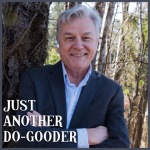 My guest on this podcast is Kristen Holzapfel, and the subject of our conversation is a book she wrote entitled Selfless.
My guest on this podcast is Kristen Holzapfel, and the subject of our conversation is a book she wrote entitled Selfless.
It is a story of Kristen’s work on the frontlines of social work- particularly in child protection.
After several years in a relentlessly fast paced environment she developed symptoms of vicarious trauma, which quickly led to the development of anorexia nervosa.
Kristen did her social work degree at ACU in Canberra, and one of her teachers and former Head of the School of Social Work, Kandie Allen-Kelly wrote the foreword to Kristen’s book.
In the foreword Kandie writes,
I met Kristen when she was a twenty-three-year-old social work student, she struck me as bright, lovely, idealistic, optimistic, warm, friendly and kind young woman… the quality of her writing and the honesty of her reflections, drew me into a world where I felt afraid, alone and angry that the profession had so badly let down one of our own…. Front line agencies not only deal with the toughest of societal issues and the worst cases of poverty abuse and violence. They are also subjected to high media scrutiny and repeated reviews and enquiries, all of which contribute to high levels of burnout, staff turnover and repeated failure to provide appropriate levels of professional supervision…
Selfless takes us in and out of Kristen’s recovery, reminding us that it is not a linear process, but one where survivors often revisit stresses and automatic behaviours which lead to downward spirals, and then back to new or different recovery paths. We come to understand or be reminded that vicarious trauma is “a process of change resulting from empathic engagement with trauma survivors” (Perlman 1999) and that shame – that deep sense of worthlessness and inadequacy – is deeply rooted within the development of such trauma. Kristen reminds us that vicarious trauma can be processed and worked through, but if we add another layer of stress (like workplace bullying or administrative ignorance) before it has been processed, psychological outcomes can become very shaky indeed.
For listeners who want to know more, or buy Kristen’s book, you can go to her website.
Podcast: Play in new window | Download

Thank you so much for your interview with Kristen Holzapfel.
I am here, laying on my couch day after day, after many years of mental health social work specialising in suicidality and enduring massive workplace bullying and no supervision. I can no longer work in my profession. I felt completely unsafe and developed a chronic pain condition.
When Vittorio responded to Kristen with the word ‘brutality’, I too began crying.
This has been a very helpful interview. Thank you.
What a great interview. I could rant and rave about the support you get from working in child protection. Some team leaders are good some are shameful and not fit for office. What a shame we do not look after people in the front line and pay them a decent wage. Well done for Kristen for writing a book and setting up a business. I wish her the best.